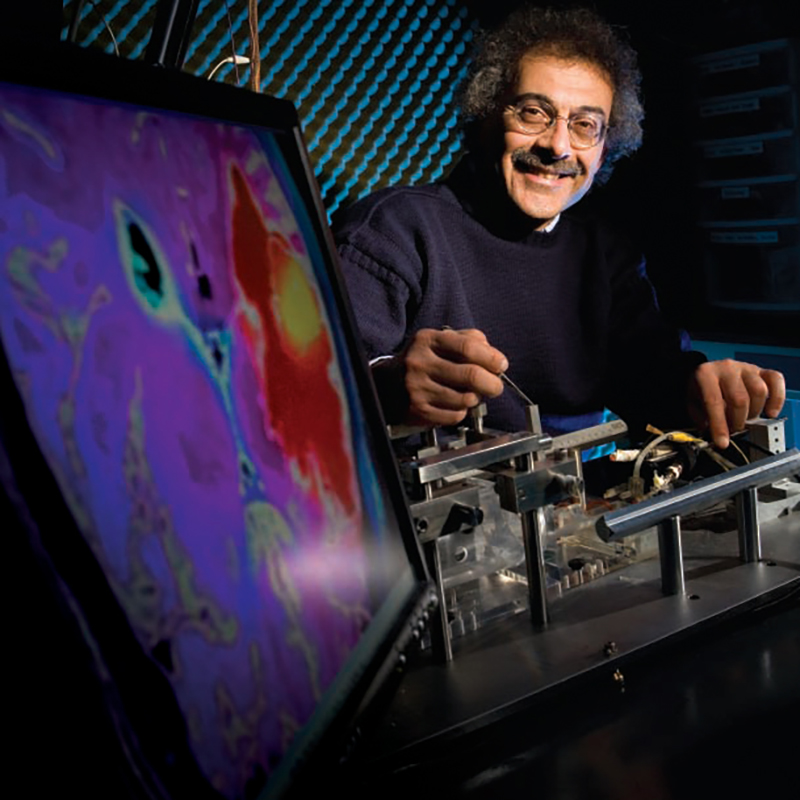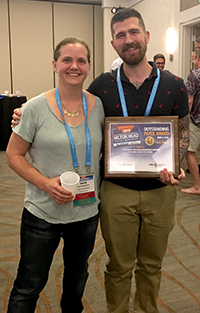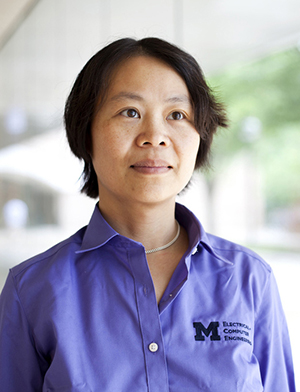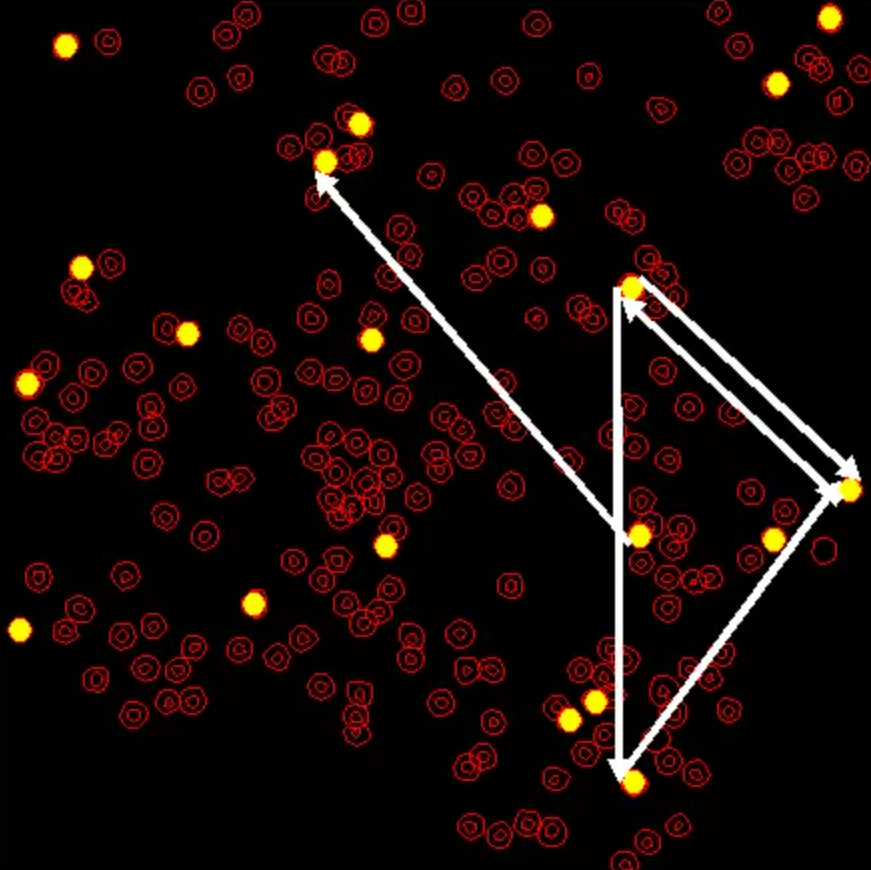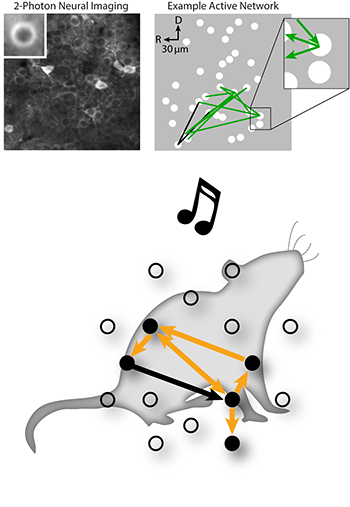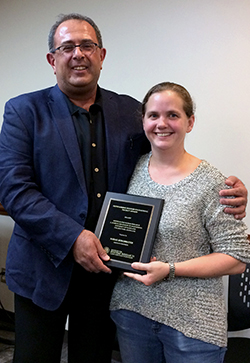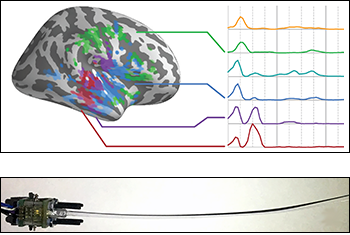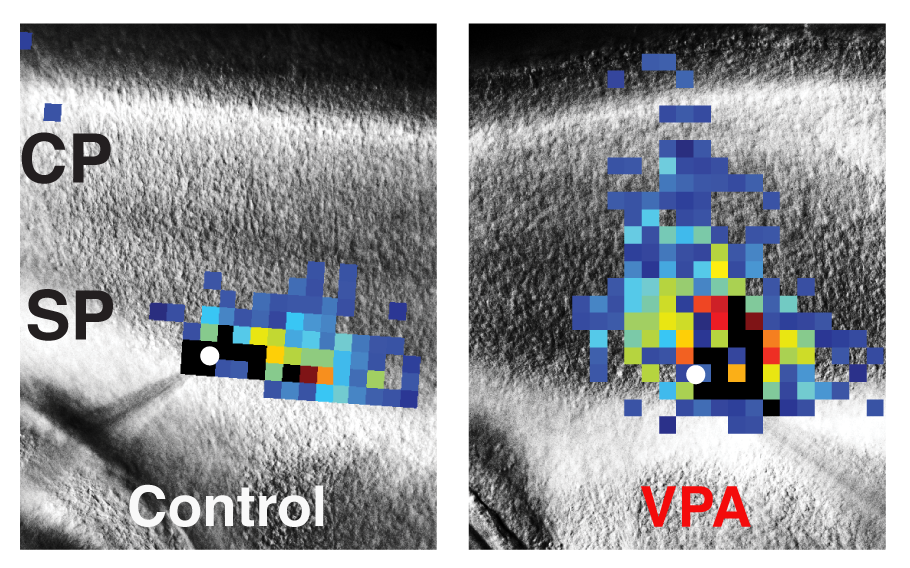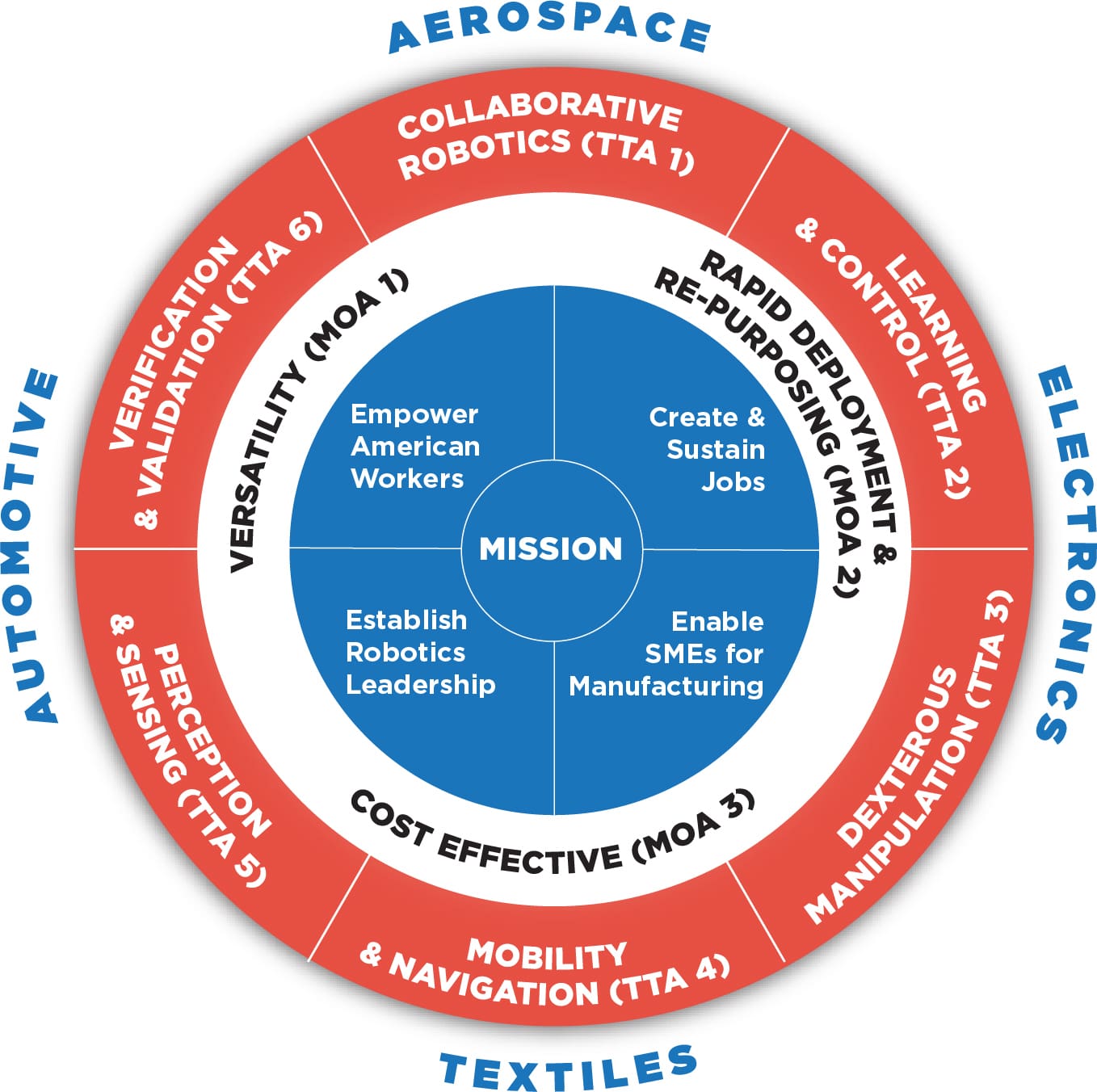News Story
Bergbreiter, Kanold part of new MURI research teams
Two ISR faculty members are on MURI research teams just announced by the Department of Defense.
Associate Professor Sarah Bergbreiter (ME/ISR) is part of a new Multidisciplinary University Research Initiative (MURI) announced by the Department of Defense on June 2. “Evolutionary Mechanics of Impulsive Biological Systems: Guiding Scalable Synthetic Design” is a five-year Army Research Office project that falls under MURI Topic 1: Emulating the Principles of Impulsive Biological Force. In addition to the University of Maryland, other universities include Duke (lead institution), Stanford, Harvard, UMass Amherst and UC Irvine.
ISR-affiliated Associate Professor Patrick Kanold (Biology) also is a member of a newly announced MURI, “Understanding and Controlling the Coupled Electrical, Chemical & Mechanical Excitable Networks of Living System.” This five-year project, led by the University of Maryland, is sponsored by the Air Force Office of Scientific Research and falls under MURI Topic 9: Exploiting Biological Electromechanics: Using Electromagnetics Energy to Control Biological Systems. Other universities participating in this MURI include Arizona State University, Johns Hopkins and UC-Davis. Additional Maryland faculty working on this project include the Project Lead Wolfgang Losert (IREAP and IPST) and John Fourkas (Chemistry/Biochemistry).
University of Maryland researchers are involved with six of the 22 MURI teams just announced. This puts the university in a three-way tie with MIT and Stanford for the most grants involving any one university in 2015.
The highly competitive MURI program supports research teams, primarily at academic institutions, whose work spans multiple traditional science and engineering disciplines to accelerate research progress. For 2015, the Army Research Office, the Air Force Office of Scientific Research, and the Office of Naval Research solicited proposals in 19 topics important to the DOD. After a total of 289 white papers were submitted, followed by a total of 76 proposals, 22 teams were selected to receive awards worth a total of $149 million over the next five years. MURI awards provide students and researchers with long-term support important for discovery and applied research programs.
"The University of Maryland's outstanding performance in securing these MURI awards demonstrates our world class, interdisciplinary research expertise in science and engineering," said UMD Vice President and Chief Research Officer Patrick O'Shea.
The four other new MURIs with Maryland faculty are:
"Engineering Exotic States of Light with Superconducting Circuits"; Mohammad Hafezi (ECE/JQI/IREAP).
"Harnessing Strong-Field MidInfrared (IR) Lasers: Designer Beams of Relativistic Particles and THz-to-X-ray Light"; Kiyong Kim (Physics/IREAP) and Howard Milchberg (ECE/Physics/IREAP).
"A 4D Nanoprinter for Making and Manipulating Macroscopic Materials”; YuHuang Wang (Chemistry and Biochemistry).
"Metalloid Cluster Building Blocks and Their Inclusion with Composite”; Bryan Eichhorn and Michael Zachariah (Chemistry and Biochemistry).
Published June 9, 2015
